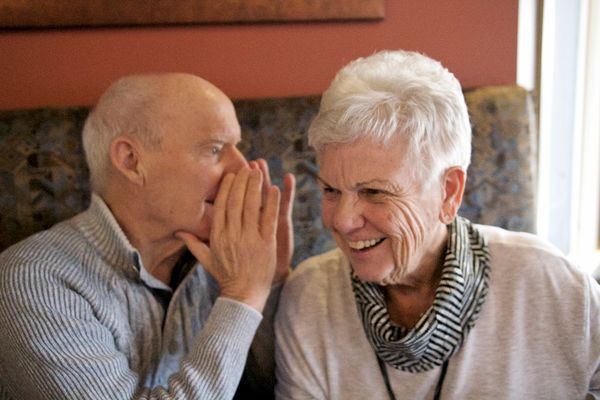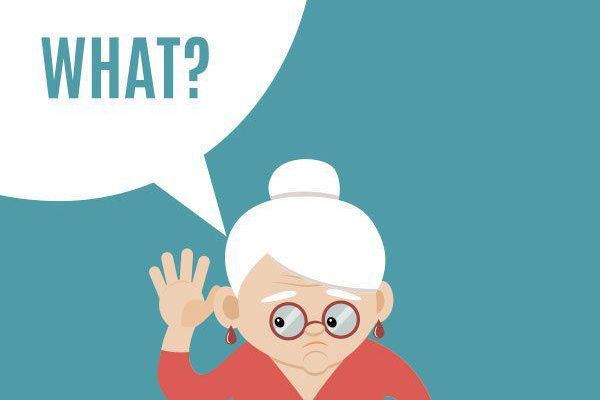By Michelle Andrews, Kaiser Health News
April 10, 2018
Last December, Deb Wiese bought hearing aids for her parents, one for each of them. She ordered them online from a big-box retailer and paid $719 for the pair. But her parents, in their 80s and retired from farming in central Minnesota, couldn’t figure out how to adjust the volume or change the batteries. They soon set them aside.
"Technology is not only unfamiliar but unwelcome" to her parents, Wiese said. "I don’t know what the answer is for people like that."
A bill introduced by Sen. Elizabeth Warren (D-Mass.) and Sen. Rand Paul (R-Ky.) in March could make it easier for her parents and millions like them to get assistance. It would allow Medicare to pay audiologists to teach beneficiaries how to adjust to and use their hearing aids as well as how to manage communication with other people, among other things.
Under current law, Medicare generally reimburses audiologists for diagnosing hearing loss in older adults but not for providing assistance to fit, adjust and learn to make the most of hearing aids.
The proposed bill comes on the heels of a law signed last summer by President Donald Trump that directs the Food and Drug Administration to establish and regulate a new category of hearing aid to be sold over the counter for people with mild to moderate hearing loss. People will be able to buy products off the shelf without consulting an audiologist or hearing aid dispenser, and standards for online sales will be tightened. The agency has three years to develop safety and other consumer protection standards.
The National Academies of Sciences, Engineering and Medicine recommended that the FDA take that step in a 2016 report.
Although it should improve access, the new law doesn’t address one of the biggest barriers faced by the nearly 50 million people with age-related hearing loss: insurance coverage.
Neither traditional Medicare nor most private insurers typically cover hearing aids. (Some Medicare Advantage plans provide some coverage, and some insurers may offer a discount if members use certain suppliers.)
"Cost has for many years been the No. 1 problem in the calls, emails and letters we get," said Barbara Kelley, executive director and CEO of the Hearing Loss Association of America, a patient advocacy group. "People say, ‘I need hearing aids and I can’t afford them.’ It’s really heartbreaking."
Only 10 to 20 percent of people with hearing loss have ever used hearing aids, according to studies. In addition to cost, lack of access to care and the stigma associated with wearing a hearing aid discourages people, Kelley said.
Losing the ability to hear well doesn’t just mean people have to turn the volume way up on their favorite TV shows. Hearing loss is associated with depression, social isolation and an increased risk for cognitive decline and dementia in older adults.
Hearing aid prices vary widely, ranging from an average $900 to $3,100 apiece, according to a survey of hearing care professionals by the Hearing Review. On the high end, devices may be Bluetooth-enabled to stream wirelessly from people’s cellphones to their hearing aids, among other perks.
But not everyone needs or wants that much help. "Some people are very mildly impaired," said Kim Cavitt, a billing and reimbursement consultant and former president of the Academy of Doctors of Audiology who supports over-the-counter sales. "They don’t have a $3,000 problem, they have a $300 problem."
Experts say they hope the over-the-counter hearing aid law will spur competition and product innovation and bring down prices.
One of the reasons hearing aid prices are often high is because the devices are typically bundled with a service package to fit, troubleshoot and maintain them.
Disentangling the service from the devices would benefit consumers, said Nicholas Reed, a faculty member at the Cochlear Center for Hearing and Public Health at Johns Hopkins Bloomberg School of Public Health who has studied over-the-counter hearing devices that provide results comparable to hearing aids.
In addition to basic hearing-aid fitting and maintenance, hearing care professionals can help people learn strategies to hear better, Reed said. For example, people learn to sit with their back to a wall at a restaurant to eliminate the sound behind them so they can focus on listening to the person in front of them.
"The over-the-counter law will lower the cost and make hearing aids more accessible," Reed said. "But if the services aren’t covered, people, especially older adults with health literacy issues, will stop using them."
KHN (Kaiser Health News) is a national newsroom that produces in-depth journalism about health issues. Together with Policy Analysis and Polling, KHN is one of the three major operating programs at KFF (Kaiser Family Foundation). KFF is an endowed nonprofit organization providing information on health issues to the nation.







